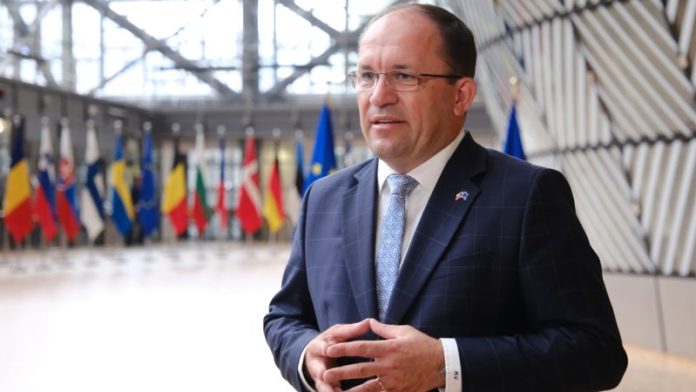The Czech Republic would propose a ban on imports of Russian and Belarusian grain to the EU at a meeting of the European Council on Thursday and Friday, Agriculture Minister Marek Výborný announced.
“Russian or Belarusian commodities have no place in Europe. I don’t see any reason why Russian grain should be in Europe. I am convinced nobody should support an aggressor by buying grain from it. This is what I will be advocating in the EU. We will push for cereals and oilseeds to be on the sanctions list and not to be sent to Europe.”
Sustainability of the agricultural sector for food security and the return “to the current challenges in the agricultural sector and concerns raised by farmers,” with surplus grain from Ukraine and Russia will be among the key issues to be discussed.
In addition to this week’s European Council meeting, Výborný will also raise the issue at the next Agriculture and Fisheries Council on 26 March.
The Czech Republic has surpluses for export. There was a surplus harvest worldwide.
The Commission was announced to make a proposal “shortly” during a telephone conversation between European Commission President Ursula von der Leyen and Polish Prime Minister Donald Tusk on 15 March.
Polish Agriculture Commissioner Janusz Wojciechowski also noted that the European Commission was evaluating the possibility of imposing restrictions on imports of agricultural products from Russia to the EU.
Russia will export over 50 million tons of wheat. When one country has a quarter of all wheat exports, it can destabilise the situation. And this is what we see.
Last month, Latvia imposed a unilateral trade ban on imports of Russian agricultural products, with Tusk suggesting similar measures could be taken in Poland.
